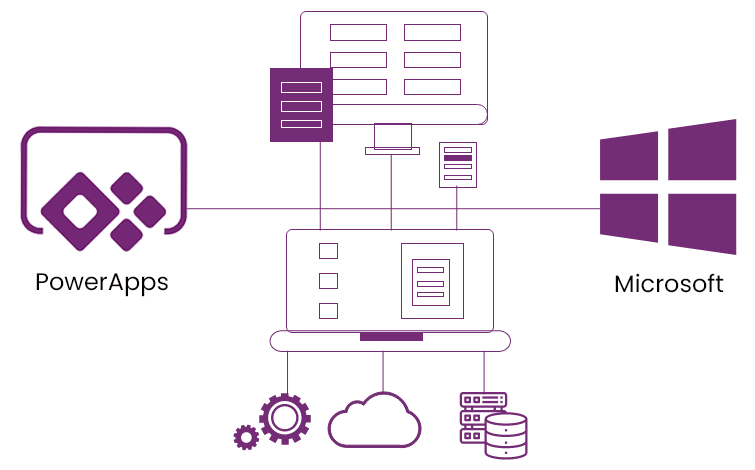As businesses grow, they often need customized software solutions to streamline operations and improve productivity. However, deciding whether to build custom software or use a low-code platform like Power Apps can be difficult. So, let’s explore the pros and cons of each approach to help you decide which is the better choice for your organization.
Power Apps

Power Apps is a low-code platform that allows users to create custom business applications without extensive coding knowledge. It provides a visual development environment where users can drag and drop components to create custom forms, workflows, and dashboards. Power Apps allows for rapid application development, reducing the time and cost associated with custom development.
Pros:
- Low-code platform: Users with minimal coding experience can create custom applications using pre-built components.
- Faster development: Rapid application development means applications can be deployed quickly, reducing time-to-market.
- Cost-effective: The low-code approach means the development cost is lower than traditional custom development.
Cons:
- Limited functionality: Power Apps provides pre-built components for standard functionality, but there are limitations on the complexity of the applications that can be built.
- Restricted to the Power Platform: Applications built with Power Apps are restricted to the Power Platform, limiting integration with other systems.
- Limited control: Users have limited control over the underlying code and may be unable to customize applications to their needs.
Custom Development
Custom development involves building a software solution using programming languages like Java or C#. This approach provides greater flexibility and control over the application’s functionality but requires higher technical expertise.
Pros:
- Greater functionality: Custom development allows for greater complexity and functionality than is possible with low-code platforms.
- More flexibility: Custom development allows for greater control over the application’s functionality, giving businesses more flexibility to meet their unique needs.
- Integrations: Custom development provides greater flexibility in integrating with other systems and technologies.
Cons:
- Higher cost: Custom development can be more expensive than low-code development due to the need for technical expertise and longer development times.
- Longer development time: Custom development takes longer to complete than low-code development, which can increase time-to-market.
- Maintenance: Custom applications require ongoing maintenance and support, which can be time-consuming and costly.
So, which is the better choice for your organization? The answer depends on your specific needs and resources. Power Apps can be cost-effective and efficient if you need a simple application with limited functionality. However, custom development may be better if you need a more complex application with specific functionality. In either case, working with a development team with the necessary expertise and experience to deliver a successful outcome is essential.









